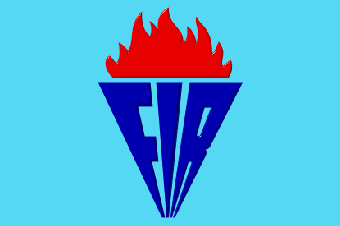
The FIR reminds of the fact that with the end of the GDR more than 30 years ago from 1990 neo-fascist violence practiced their inhuman politics in whole Germany. Already in January 1990 with the desecration of the memorial in the Treptow Park it became visible that the political self-understanding of the GDR, the anti-fascism as state doctrine, should be dismantled publicly. We also do not forget that in the months that followed, the new political rulers delegitimized anti-fascism by attacking concentration camp memorials and removing street names and other memorials. Together with the massive flare-up of nationalism and racism in public discourse, there were attacks and riots against migrants in many German cities. A wave of racist violence developed based on this politically willed social climate, with Hoyerswerda, Solingen, Rostock-Lichtenhagen and Mölln becoming its symbolic place names.
The pictures that were supposed to show in the media at the time that Germany was no longer able to cope with the “flood of asylum” were images of Roma, who were denied access to the Central Reception Center (ZASt) by the authorities. They had to camp outside the facility, people who were offered no water, bread, roof over their heads and no “place” to relieve themselves. In this way, social moods were produced that erupted in pogroms.
The end of August 2022 marks the thirtieth anniversary of the Rostock-Lichtenhagen pogrom. The images of the jeering crowds that were not stopped by any police between August 22 and 26, 1992, and of the burning house that was not extinguished by any fire department for hours, went around the world. It was – as antifascists say – a right wing “folk festival of violence”. The “Sunflower House” in Rostock-Lichtenhagen, in front of which Nazis and the racist mob gathered, in front of which refugees and Vietnamese workers were insulted, threatened and almost killed, still stands today as a symbol of the pogrom of 1992. However, we also do not forget that the political consequences of the racist riots were primarily directed against the victims. In 1993, the right of asylum was restricted in Germany. The right-wing mob had won.
The FIR emphasizes that the fight against institutionalized racism in Germany and other countries of the European Union needs a clear inventory. To this day, however, politicians refuse to call the pogroms of Rostock-Lichtenhagen as such. Despite clear continuities of right-wing terror in Germany, people keep talking about “individual cases” and the political answer to right-wing violence in Rostock as elsewhere is deportation and resettlement instead of protection of minorities.
The FIR supports the German anti-fascists who warn of political continuities and the current dangers of right-wing violence. After racist mobs that ran up in front of homes of refugees and asylum seekers in the 1990s, today we have to deal – in addition to PEGIDA and “concerned citizens” – more and more with right-wing assassins who deliberately kill people. The “National Socialist Underground” (NSU) and the murder of the politician Dr. Walter Lübcke in Kassel are representative of this.
An appeal by the VVN-BdA therefore states:
“We must confront right-wing violence, yesterday as today. Therefore, we call as part of the alliance “Commemoration of the Pogrom. Lichtenhagen 1992″ for a nationwide large-scale demonstration on August 27, 2022 in Rostock-Lichtenhagen and demand:
– Name the attack in Rostock-Lichtenhagen 1992 as a racist pogrom!
– Name and fight racist violence!
– Deportation stop and right to stay for Romn:ja and all victims of racist violence!
Let’s take the streets in large numbers, because racist violence and institutional racism go hand in hand until today.”
